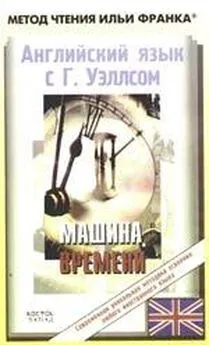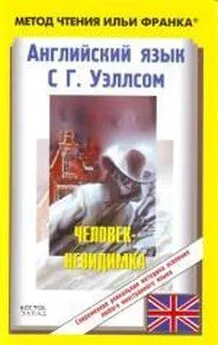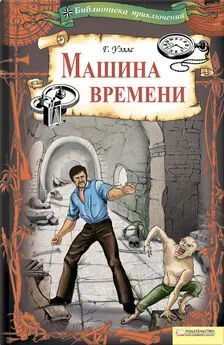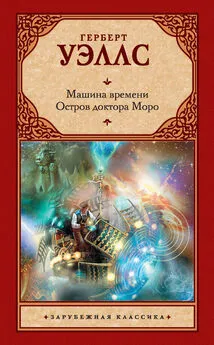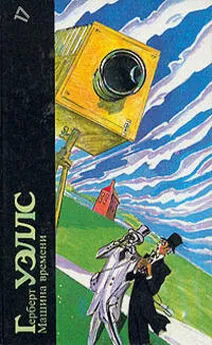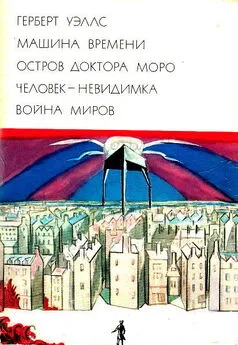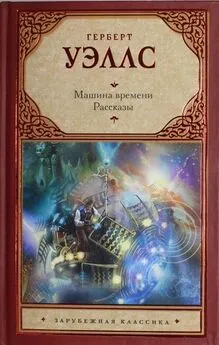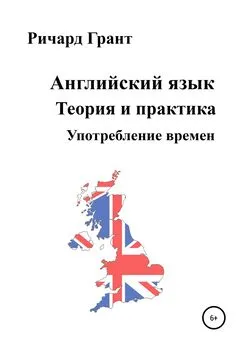H. Wells - Английский язык с Гербертом Уэллсом. Машина Времени
- Название:Английский язык с Гербертом Уэллсом. Машина Времени
- Автор:
- Жанр:
- Издательство:неизвестно
- Год:неизвестен
- ISBN:нет данных
- Рейтинг:
- Избранное:Добавить в избранное
-
Отзывы:
-
Ваша оценка:
H. Wells - Английский язык с Гербертом Уэллсом. Машина Времени краткое содержание
Английский язык с Гербертом Уэллсом. Машина Времени - читать онлайн бесплатно полную версию (весь текст целиком)
Интервал:
Закладка:
museum [mju(:)`zJqm], quite [kwaIt], rare [req]
'Suddenly Weena came very close to my side. So suddenly that she startled me. Had it not been for her I do not think I should have noticed that the floor of the gallery sloped at all. [Footnote: It may be, of course, that the floor did not slope, but that the museum was built into the side of a hill.—ED.] The end I had come in at was quite above ground, and was lit by rare slit-like windows.
'As you went down the length, the ground came up against these windows (но по мере того как мы шли дальше, земля подступала к /самым/ окнам; length — длина; расстояние ), until at last there was a pit like the "area" of a London house before each (пока наконец осталось только углубление, как «проход в подвал» перед каждым Лондонским домом; area — площадь, площадка, участок, пространство ), and only a narrow line of daylight at the top (и только узкая полоска дневного света наверху). I went slowly along, puzzling about the machines (я медленно шел вперед, с любопытством рассматривая машины), and had been too intent upon them to notice the gradual diminution of the light (и был совершенно поглощен ими, чтобы заметить постепенное ослабление света; intent — склонный; поглощенный, занятый/чем-либо/ ), until Weena's increasing apprehensions drew my attention (пока наконец возрастающие опасения Уины не привлекли моего внимания; apprehension — понимание; опасение, мрачноепредчувствие ). Then I saw that the gallery ran down at last into a thick darkness (тогда я увидел, что галерея убегает = уходит в непроглядную темноту; thick — толстый; густой ). I hesitated, and then, as I looked round me (помедлив в нерешительности и оглядевшись), I saw that the dust was less abundant and its surface less even (я заметил, что пыль /там/ менее густая: «обильная», а ее поверхность менее ровная; even — плоский, ровный, гладкий ).
diminution ["dImI`njHS(q)n], apprehension ["xprI`henS(q)n], even [`Jv(q)n]
'As you went down the length, the ground came up against these windows, until at last there was a pit like the "area" of a London house before each, and only a narrow line of daylight at the top. I went slowly along, puzzling about the machines, and had been too intent upon them to notice the gradual diminution of the light, until Weena's increasing apprehensions drew my attention. Then I saw that the gallery ran down at last into a thick darkness. I hesitated, and then, as I looked round me, I saw that the dust was less abundant and its surface less even.
Further away towards the dimness, it appeared to be broken by a number of small narrow footprints (дальше, в темноте, она, казалось, была нарушена небольшими узкими следами = на ней как будто виднелись небольшие узкие следы). My sense of the immediate presence of the Morlocks revived at that (ощущение непосредственной близости морлоков ожило при этом во мне). I felt that I was wasting my time in the academic examination of machinery (я почувствовал, что даром теряю время на праздный: «академический = учебный» осмотр машин). I called to mind that it was already far advanced in the afternoon (я спохватился: «призвал к памяти», что уже далеко за полдень), and that I had still no weapon, no refuge, and no means of making a fire (а я все еще не имею оружия, убежища и средств для добывания огня). And then down in the remote blackness of the gallery I heard a peculiar pattering (затем внизу, в далекой темноте галереи, я услышал /тот же/ особенный топот; to patter — барабанить/одождевыхкаплях/; топотать, семенить, шлепать; remote— дальний, далекий, отдаленный ), and the same odd noises I had heard down the well (те же странные звуки, которые я слышал тогда в глубине колодца).
immediate [I`mJdIqt], presence [prezns], peculiar [pI`kjHljq]
Further away towards the dimness, it appeared to be broken by a number of small narrow footprints. My sense of the immediate presence of the Morlocks revived at that. I felt that I was wasting my time in the academic examination of machinery. I called to mind that it was already far advanced in the afternoon, and that I had still no weapon, no refuge, and no means of making a fire. And then down in the remote blackness of the gallery I heard a peculiar pattering, and the same odd noises I had heard down the well.
'I took Weena's hand (я взял Уину за руку). Then, struck with a sudden idea (но, пораженный внезапной идеей), I left her and turned to a machine from which projected a lever not unlike those in a signal-box (я оставил ее и направился к машине, из которой торчал рычаг, вроде тех, которые /есть/ на железнодорожных блокпостах; to project —выбрасывать, выпускать ). Clambering upon the stand, and grasping this lever in my hands (взобравшись на подставку и ухватившись за рычаг обеими руками), I put all my weight upon it sideways (я всей своей тяжестью навалился на него). Suddenly Weena, deserted in the central aisle (внезапно Уина, брошенная в центральном крыле), began to whimper (начала хныкать). I had judged the strength of the lever pretty correctly (я рассчитал силу рычага совершенно правильно), for it snapped after a minute's strain (так как он сломался после минутной нагрузки), and I rejoined her with a mace in my hand more than sufficient, I judged (и я вернулся к Уине с булавой в руке, более чем достаточной, я полагал; to rejoin — воссоединяться ), for any Morlock skull I might encounter (/чтобы проломить/ череп любому морлоку, который повстречался бы на пути; to encounter — неожиданновстретить/ся/, столкнуться/скем-либо/ ).
whimper [`wImpq], sufficient [sq`fISqnt], encounter [In`kauntq]
'I took Weena's hand. Then, struck with a sudden idea, I left her and turned to a machine from which projected a lever not unlike those in a signal-box. Clambering upon the stand, and grasping this lever in my hands, I put all my weight upon it sideways. Suddenly Weena, deserted in the central aisle, began to whimper. I had judged the strength of the lever pretty correctly, for it snapped after a minute's strain, and I rejoined her with a mace in my hand more than sufficient, I judged, for any Morlock skull I might encounter.
And I longed very much to kill a Morlock or so (а мне ужасно хотелось убить хотя бы одного морлока). Very inhuman, you may think, to want to go killing one's own descendants (очень бесчеловечно, вы можете подумать, хотеть убить одного из наших потомков)! But it was impossible, somehow, to feel any humanity in the things (но к ним было невозможно чувствовать какую-либо человечность = относиться по-человечески). Only my disinclination to leave Weena (только мое нежелание оставить Уину), and a persuasion that if I began to slake my thirst for murder my Time Machine might suffer (и уверенность, что, если я начну утолять свою жажду убийства, может пострадать Машина Времени; toslake— утолять /голод, жажду/ ), restrained me from going straight down the gallery and killing the brutes I heard (удержали меня от /попытки/ спуститься прямо по галерее вниз и /начать/ истребление тварей, которых я слышал /там/; torestrain— сдерживать, удерживать; brute— животное ).
disinclination ["dIsInklI`neIS(q)n], restrain [rIs`treIn], brute [brHt]
And I longed very much to kill a Morlock or so. Very inhuman, you may think, to want to go killing one's own descendants! But it was impossible, somehow, to feel any humanity in the things. Only my disinclination to leave Weena, and a persuasion that if I began to slake my thirst for murder my Time Machine might suffer, restrained me from going straight down the gallery and killing the brutes I heard.
'Well, mace in one hand and Weena in the other (и вот, с булавой в одной руке и Уиной в другой), I went out of that gallery and into another and still larger one (я вышел из этой галереи и /направился/ в другую, еще большую), which at the first glance reminded me of a military chapel hung with tattered flags (которая с первого взгляда напомнила мне военную часовню, обвешанную изорванными знаменами; to tatter — рватьсявклочья ). The brown and charred rags that hung from the sides of it (в коричневых и обуглившихся = черных лоскутьях, которые висели по стенам), I presently recognized as the decaying vestiges of books (я вскоре узнал разрушенные = истлевшие остатки книг; vestige — след, остаток; признак ). They had long since dropped to pieces (они давным-давно рассыпались на куски), and every semblance of print had left them (и даже подобия букв не осталось на них; semblance — подобие, сходство; print— печать ). But here and there were warped boards and cracked metallic clasps that told the tale well enough (но кое-где были = валялись покоробленные корешки и треснувшие металлические застежки, которые рассказывали историю достаточно хорошо = говорили сами за себя; to warp — коробить/ся/, деформировать/ся/; to crack — трещать, скрипеть; трескаться ).
chapel [`Cxp(q)l], semblance [`semblqns], warp [wLp]
'Well, mace in one hand and Weena in the other, I went out of that gallery and into another and still larger one, which at the first glance reminded me of a military chapel hung with tattered flags. The brown and charred rags that hung from the sides of it, I presently recognized as the decaying vestiges of books. They had long since dropped to pieces, and every semblance of print had left them. But here and there were warped boards and cracked metallic clasps that told the tale well enough.
Читать дальшеИнтервал:
Закладка:
